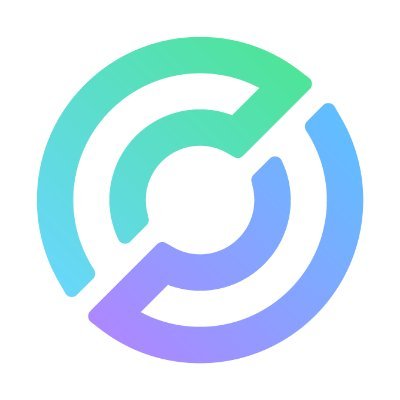Comparar Circle Wallet vs CoinSpot Wallet Wallet
In today's digital market, the trend of cryptocurrency has flooded the financial sector. With thousands of crypto coins available for trade, the necessity of a safe and secure digital wallet has gained paramount importance. The article will delve into a comparison between two major crypto-wallets - Circle Wallet and CoinSpot Wallet, to assist users in making an informed choice.
| Empresa | ||
|---|---|---|
| User rating | 5 avaliações do usuário | 16 avaliações do usuário |
| Cryptogeek rating | ||
| Pontuação de Confiança Como funciona |
Sobre
|
Circle é uma carteira fácil de usar, proporcionando uma oportunidade de comprar, transferir e economizar dinheiro digital. O nome completo da aplicação foi Circle Invest wallet. Sua versão móvel pode ser encontrada no Google Play e Apple Store.
|
Coinspot wallet é um serviço especial prestado pela coisnpot exchange. Ele fornece uma carteira quente para cada moeda que sua bolsa está atualmente negociando. Juntamente com crypto, ele também suporta O Dólar Australiano. Atualmente, a carteira de moedas tem mais de 60 moedas e fichas. O Built-in exchange é uma característica adicional da carteira, bem como 2FA para a segurança adicional. A única língua disponível é o inglês.
|
Data de fundação
| 2013 | 2013 |
País
| USA | Australia |
Idiomas
| English | English |
Wallet type
| Software wallet | Software wallet |
Storage type
| Cold wallet | Hot wallet |
Private keys
| Not available | Not available |
Available coins
| 6 - Bitcoin (BTC), USD Coin (USDC), Ethereum (ETH), Stellar (XLM), Algorand (ALGO), Solana (SOL) | 149 - Bitcoin (BTC), Basic Attention Token (BAT), IOTA (MIOTA), Tezos (XTZ), Ethereum Classic (ETC), NEO (NEO), VeChain (VET), OmiseGO (OMG), Qtum (QTUM), Verge (XVG), Lisk (LSK), ICON (ICX), Ontology (ONT), Bitcoin Gold (BTG), Zcash (ZEC), Nano (NANO), Populous (PPT), Bytecoin (BCN), Steem (STEEM), Wanchain (WAN), Siacoin (SC), Dogecoin (DOGE), Waves (WAVES), Zilliqa (ZIL), Decred (DCR), Aeternity (AE), Status (SNT), 0x (ZRX), Loopring (LRC), Komodo (KMD), Aion (AION), Golem (GNT), Ardor (ARDR), IOST (IOST), DigiByte (DGB), Ark (ARK), Waltonchain (WTC), aelf (ELF), PIVX (PIVX), Factom (FCT), Dragonchain (DRGN), Substratum (SUB), Mithril (MITH), Syscoin (SYS), Gas (GAS), Elastos (ELA), Voyager Token (VGX), FunFair (FUN), Nxt (NXT), Nebulas (NAS), Nucleus Vision (NCASH), OByte (GBYTE), ReddCoin (RDD), Revain (REV), WAX (WAX), SALT (SALT), Electroneum (ETN), MaidSafeCoin (MAID), Power Ledger (POWR), Zcoin (XZC), Enigma (ENG), Storj (STORJ), TenX (PAY), Neblio (NEBL), Cindicator (CND), Skycoin (SKY), Horizen (ZEN), Civic (CVC), SingularityNET (AGI), POA Network (POA), Nexus (NXS), GameCredits (GAME), Dent (DENT), Vertcoin (VTC), Quantstamp (QSP), iExec RLC (RLC), Decentraland (MANA), Polymath (POLY), Po.et (POE), Loom Network (LOOM), NULS (NULS), Enjin Coin (ENJ), Raiden Network Token (RDN), Metal (MTL), Arcblock (ABT), Pundi X (NPXS), SIRIN LABS Token (SRN), Bluzelle (BLZ), Genesis Vision (GVT), THETA (THETA), NavCoin (NAV), Gifto (GTO), Comet (CMT), AirSwap (AST), OST (OST), Scry.info (DDD), Ripio Credit Network (RCN), Streamr DATAcoin (DATA), Quantum Resistant Ledger (QRL), AdEx (ADX), UTRUST (UTK), Einsteinium (EMC2), Ambrosus (AMB), Groestlcoin (GRS), WePower (WPR), Peercoin (PPC), Crypterium (CRPT), USD Coin (USDC), Ripple (XRP), Binance Coin (BNB), Bitcoin Cash (BCH), Bitcoin SV (BSV), Cardano (ADA), Cosmos (ATOM), Dash (DASH), EOS (EOS), Ethereum (ETH), Litecoin (LTC), Monero (XMR), NEM (XEM), Stellar (XLM), Tether (USDT), Tron (TRX), Polkadot (DOT), BitTorrent (BTT), Terra (LUNA), pTokens BTC (PBTC), Crypto.com Coin (CRO), Filecoin (FIL), FTX Token (FTT), Kusama (KSM), Algorand (ALGO), NEAR Protocol (NEAR), Ocean Protocol (OCEAN), Celo (CELO), Energy Web Token (EWT), Quant (QNT), Hedera Hashgraph (HBAR), Solana (SOL), Helium (HNT), IoTeX (IOTX), TomoChain (TOMO), Chiliz (CHZ), Ankr (ANKR), IRISnet (IRIS), SUN (SUN), Hive (HIVE), Unibright (UBT), Fantom (FTM) |
Segurança
| Sem dados | Sem dados |
Anonimato
| Sem dados | Sem dados |
Fácil de usar
| Sem dados | Sem dados |
Tem cartão anexado
| Sem dados | Sem dados |
Tem instalações comerciais
| Sem dados | Sem dados |
Tem vouchers e ofertas
| Sem dados | Sem dados |
Recursos
| Sem dados | Sem dados |
| Sobre |
Circle é uma carteira fácil de usar, proporcionando uma oportunidade de comprar, transferir e economizar dinheiro digital. O nome completo da aplicação foi Circle Invest wallet. Sua versão móvel pode ser encontrada no Google Play e Apple Store.
|
Coinspot wallet é um serviço especial prestado pela coisnpot exchange. Ele fornece uma carteira quente para cada moeda que sua bolsa está atualmente negociando. Juntamente com crypto, ele também suporta O Dólar Australiano. Atualmente, a carteira de moedas tem mais de 60 moedas e fichas. O Built-in exchange é uma característica adicional da carteira, bem como 2FA para a segurança adicional. A única língua disponível é o inglês.
|
|---|---|---|
| Data de fundação | Data de fundação 2013 | Data de fundação 2013 |
| País | País USA | País Australia |
| Idiomas | Idiomas English | Idiomas English |
| Wallet type | Wallet type Software wallet | Wallet type Software wallet |
| Storage type | Storage type Cold wallet | Storage type Hot wallet |
| Private keys | Private keys Not available | Private keys Not available |
| Available coins | Available coins 6 - Bitcoin (BTC), USD Coin (USDC), Ethereum (ETH), Stellar (XLM), Algorand (ALGO), Solana (SOL) | Available coins 149 - Bitcoin (BTC), Basic Attention Token (BAT), IOTA (MIOTA), Tezos (XTZ), Ethereum Classic (ETC), NEO (NEO), VeChain (VET), OmiseGO (OMG), Qtum (QTUM), Verge (XVG), Lisk (LSK), ICON (ICX), Ontology (ONT), Bitcoin Gold (BTG), Zcash (ZEC), Nano (NANO), Populous (PPT), Bytecoin (BCN), Steem (STEEM), Wanchain (WAN), Siacoin (SC), Dogecoin (DOGE), Waves (WAVES), Zilliqa (ZIL), Decred (DCR), Aeternity (AE), Status (SNT), 0x (ZRX), Loopring (LRC), Komodo (KMD), Aion (AION), Golem (GNT), Ardor (ARDR), IOST (IOST), DigiByte (DGB), Ark (ARK), Waltonchain (WTC), aelf (ELF), PIVX (PIVX), Factom (FCT), Dragonchain (DRGN), Substratum (SUB), Mithril (MITH), Syscoin (SYS), Gas (GAS), Elastos (ELA), Voyager Token (VGX), FunFair (FUN), Nxt (NXT), Nebulas (NAS), Nucleus Vision (NCASH), OByte (GBYTE), ReddCoin (RDD), Revain (REV), WAX (WAX), SALT (SALT), Electroneum (ETN), MaidSafeCoin (MAID), Power Ledger (POWR), Zcoin (XZC), Enigma (ENG), Storj (STORJ), TenX (PAY), Neblio (NEBL), Cindicator (CND), Skycoin (SKY), Horizen (ZEN), Civic (CVC), SingularityNET (AGI), POA Network (POA), Nexus (NXS), GameCredits (GAME), Dent (DENT), Vertcoin (VTC), Quantstamp (QSP), iExec RLC (RLC), Decentraland (MANA), Polymath (POLY), Po.et (POE), Loom Network (LOOM), NULS (NULS), Enjin Coin (ENJ), Raiden Network Token (RDN), Metal (MTL), Arcblock (ABT), Pundi X (NPXS), SIRIN LABS Token (SRN), Bluzelle (BLZ), Genesis Vision (GVT), THETA (THETA), NavCoin (NAV), Gifto (GTO), Comet (CMT), AirSwap (AST), OST (OST), Scry.info (DDD), Ripio Credit Network (RCN), Streamr DATAcoin (DATA), Quantum Resistant Ledger (QRL), AdEx (ADX), UTRUST (UTK), Einsteinium (EMC2), Ambrosus (AMB), Groestlcoin (GRS), WePower (WPR), Peercoin (PPC), Crypterium (CRPT), USD Coin (USDC), Ripple (XRP), Binance Coin (BNB), Bitcoin Cash (BCH), Bitcoin SV (BSV), Cardano (ADA), Cosmos (ATOM), Dash (DASH), EOS (EOS), Ethereum (ETH), Litecoin (LTC), Monero (XMR), NEM (XEM), Stellar (XLM), Tether (USDT), Tron (TRX), Polkadot (DOT), BitTorrent (BTT), Terra (LUNA), pTokens BTC (PBTC), Crypto.com Coin (CRO), Filecoin (FIL), FTX Token (FTT), Kusama (KSM), Algorand (ALGO), NEAR Protocol (NEAR), Ocean Protocol (OCEAN), Celo (CELO), Energy Web Token (EWT), Quant (QNT), Hedera Hashgraph (HBAR), Solana (SOL), Helium (HNT), IoTeX (IOTX), TomoChain (TOMO), Chiliz (CHZ), Ankr (ANKR), IRISnet (IRIS), SUN (SUN), Hive (HIVE), Unibright (UBT), Fantom (FTM) |
| Segurança | Segurança Sem dados | Segurança Sem dados |
| Anonimato | Anonimato Sem dados | Anonimato Sem dados |
| Fácil de usar | Fácil de usar Sem dados | Fácil de usar Sem dados |
| Tem cartão anexado | Tem cartão anexado Sem dados | Tem cartão anexado Sem dados |
| Tem instalações comerciais | Tem instalações comerciais Sem dados | Tem instalações comerciais Sem dados |
| Tem vouchers e ofertas | Tem vouchers e ofertas Sem dados | Tem vouchers e ofertas Sem dados |
| Recursos | Recursos Sem dados | Recursos Sem dados |
Social
Site
| www.circle.com | twitter.com |
| @circlepay | CoinSpot |
| Site | Site www.circle.com | Site twitter.com |
|---|---|---|
| Twitter @circlepay | Twitter CoinSpot |
Vantagens
| - 13 moedas criptográficas | - Fácil de usar e seguro - Fidedigno |
Desvantagens
| - Riscos relacionados com o investimento | - A plataforma só pode ser usada por residentes australianos - Um depósito com cartão tem uma taxa de 1% |
Avaliação
| User rating | User rating 5 avaliações do usuário | User rating 16 avaliações do usuário |
|---|---|---|
| Cryptogeek rating | Cryptogeek rating | Cryptogeek rating |
| Vantagens | Vantagens - 13 moedas criptográficas | Vantagens - Fácil de usar e seguro - Fidedigno |
| Desvantagens | Desvantagens - Riscos relacionados com o investimento | Desvantagens - A plataforma só pode ser usada por residentes australianos - Um depósito com cartão tem uma taxa de 1% |
A avaliação de Circle Wallet usuários é de 4.8, com base em 5 avaliações de usuários. A avaliação de CoinSpot Wallet usuários é de 4.3, com base em 16 avaliações de usuários.
We also calculate the special Cryptogeek TrustScore based on the characteristics of each wallet.
| Escolhemos o vencedor com base em nossa classificação da Pontuação de Confiança. Lembre-se de que ainda depende de você qual empresa escolher! Como calculamos a Pontuação de Confiança? |
In conclusion, both Circle Wallet and CoinSpot Wallet have their unique features and offerings in terms of currency support, fees, security, and customer support. Your individual requirements as for a user will play a critical role in deciding which one is a better fit. It is important to perform extensive research and weigh up the pros and cons before making a final decision. Remember, the crypto world is thrilling but also volatile, due care must be taken while diving into it.
In today's digital market, the trend of cryptocurrency has flooded the financial sector. With thousands of crypto coins available for trade, the necessity of a safe and secure digital wallet has gained paramount importance. The article will delve into a comparison between two major crypto-wallets - Circle Wallet and CoinSpot Wallet, to assist users in making an informed choice.

